
The PENN Spinfisher line of spinning reels has a long history of being one of the go-to spinning reels for inshore and surf fishing dating all the way back to April 1961 with the original PENN Spinfisher Model 700. Now over 60 years since that original PENN Spinfisher was released we now have the PENN Spinfisher VII reels. These new reels were originally announced last year at ICAST 2023 with the aim to continue the long legacy of excellence that anglers have come to know when it comes to PENN reels. I received this PENN Spinfisher VII Bailess Spinning Reel 6500 that November and since then have been fishing with this reel wherever I could, chasing Striper, Catfish, and Sturgeon in the river, redfish and sharks from the beach, and king mackerel and tarpon from the piers. So lets see how this reel has held up to a year of use and see if the new Spinfisher VII hits the mark of continuing the legacy.
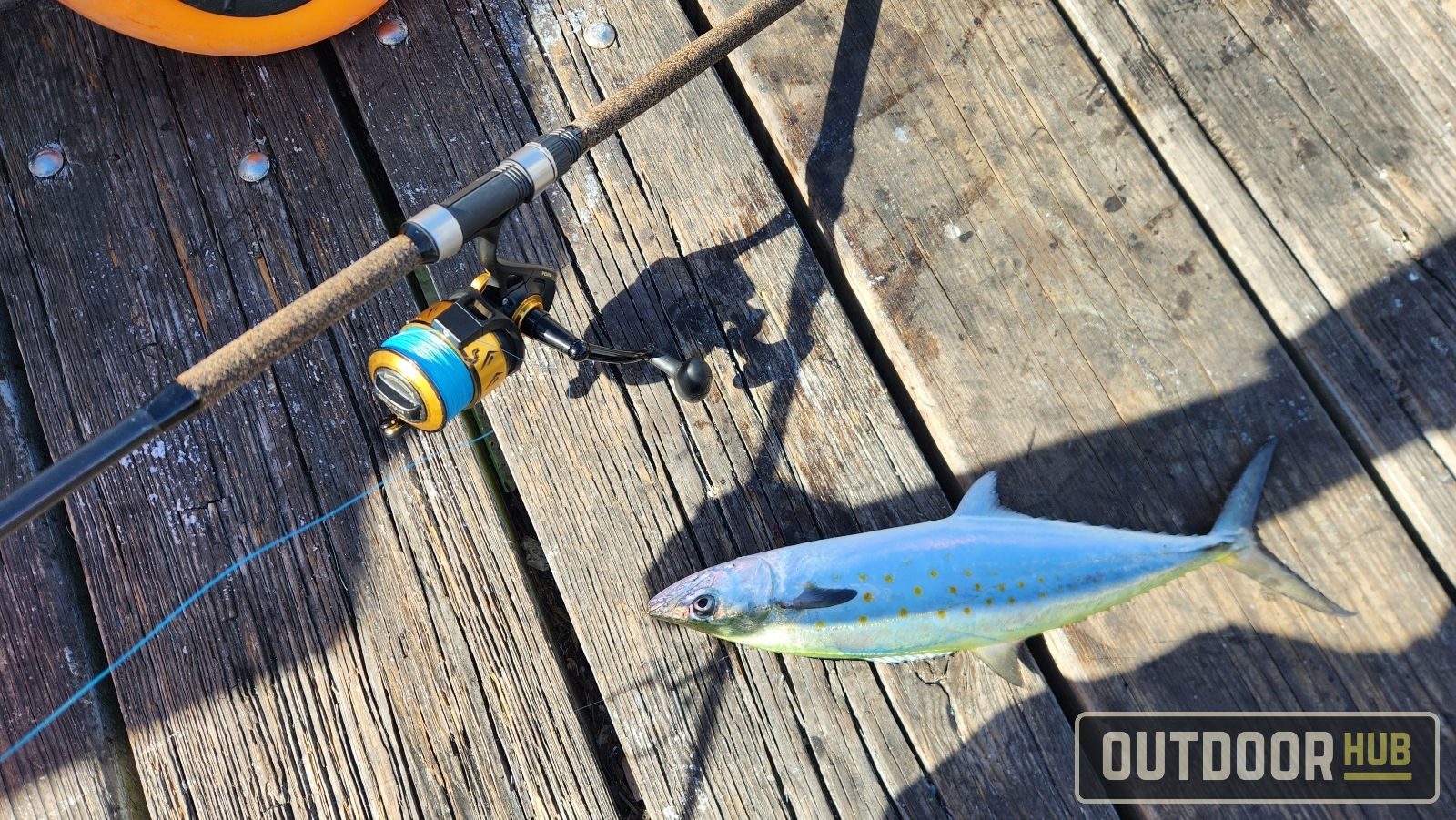

PENN Coverage on OutdoorHub
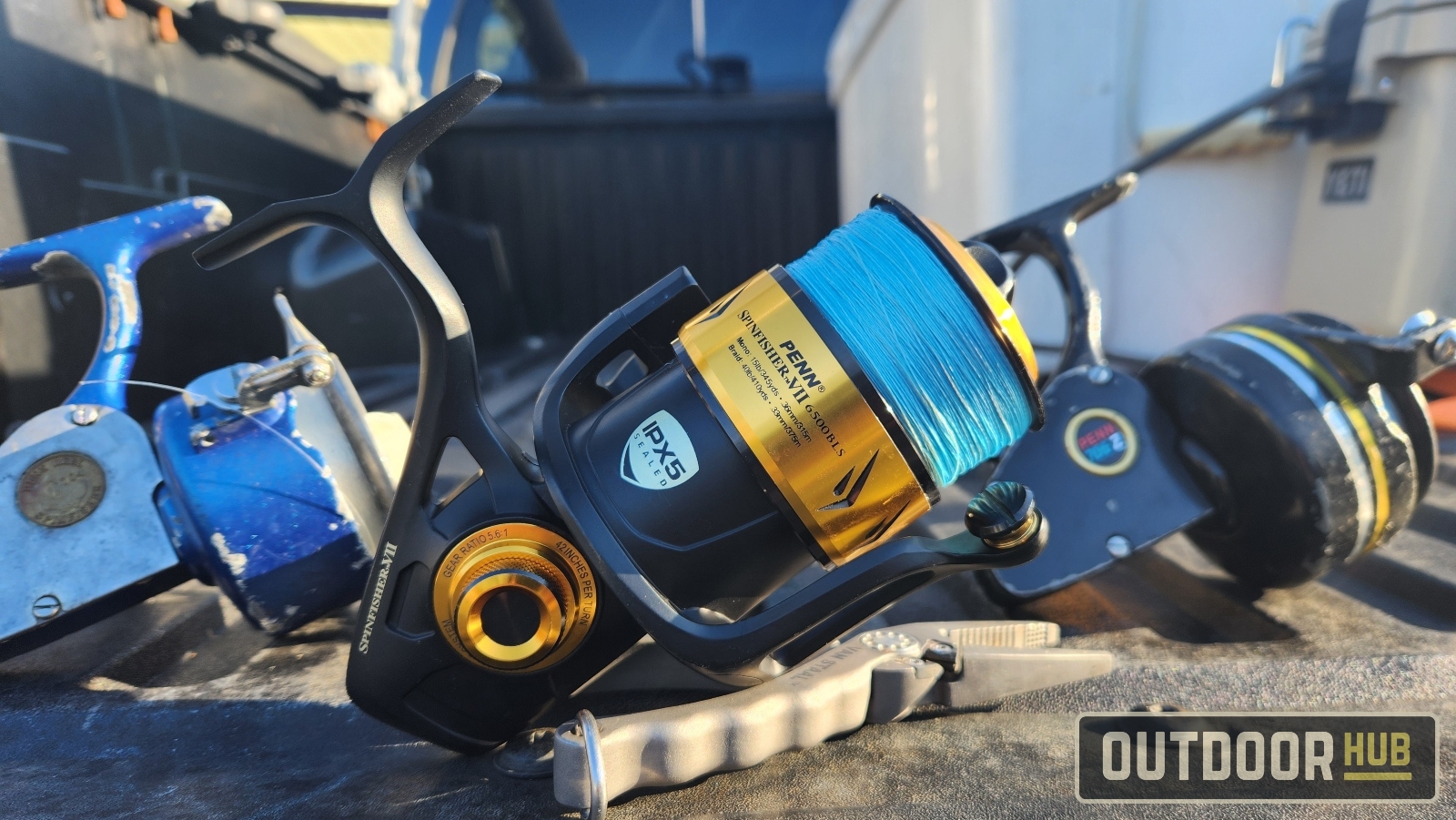

Specifications – PENN Spinfisher VII Bailess Spinning Reel 6500
The PENN Spinfisher VII comes with a fully sealed HT-100 carbon fiber drag system, which produces plenty of drag. The gearing of the Spinfisher VII has been upgraded to all-brass gears that are CNC cut, no sintered metal or cast gears here. These gears are then mated with 5+1 sealed stainless steel ball bearings for a nice tight lockup, in its full metal body. Lastly, the reel itself is IPX5 sealed, so it is protected from water intrusion from a low-pressure water stream at any angle.
The Spinfisher VII is available in 18 models, starting from a light tackle 2500 size up to an offshore big game 10500 size reel for taming the largest of sport fish. There will also be additional varieties as well such as long cast, liver liner, and bail-less variants. The max drag across all the variants will range from 15 pounds to 50 pounds depending on the reel size.
- IPX5 Sealed body and Spool Design
- CNC Gear Technology with a Brass Main Gear
- Keyed HT-100 Carbon Fiber Drag Washers
- Full Metal Body
- Superline Spool
- Bailess
- Gear Ratio – 5.6:1
- Retrieve – Right or Left
- Line Retrieve – 42 inches per turn of the handle
- Max Drag – 30lb / 13.6 kg
- Weight – 21.8 oz
- Ball Bearings – 6
- Mono Capacity (lb test/yd) – 12/390, 15/ 345, 20/205
- Braid Capacity (lb test/yd) – 30/485, 40/410, 50/335
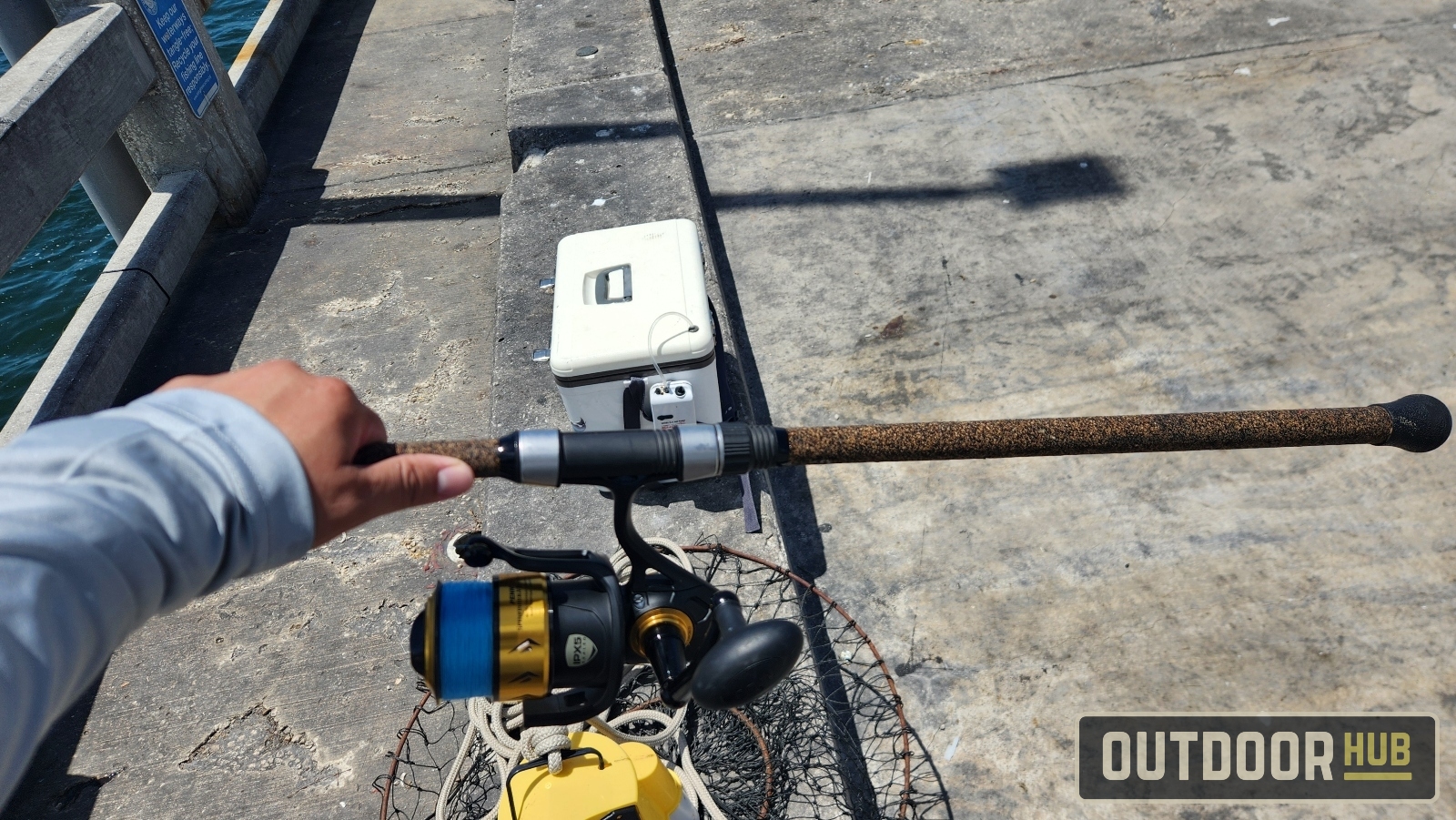

On the Water – PENN Spinfisher VII Bailess Spinning Reel 6500
Like I said before I fished about anywhere it was appropriate for a reel of this size. I had the reel spooled up with 30 lb braid tied directly to the spool, the superline spool making sure the line never slipped even under heavy drag pressure. Most of the time I had this mounted on a custom 9ft king mackerel rod and the rest of the time I had it on a 7ft Ugly Stik boat rod. The large line capacity with 30 lb braid, 485 yards, made the Spinfisher VII Bailess Spinning Reel 6500 very capable of handling big fish. I had several tarpon hookups in the past year on the reel with the fish dumping line off the reel with no issues. Even when a greedy dolphin got a hook in it while stealing a live bait, the reel held up while I locked down the drag. Even under heavy strain I didnt see any instances of flex in the rotor or slipping of the antireverse.


The reel itself did great on the water, be it throwing plugs or meat. The line retrieve rate of 42 inches of line per turn of the handle gives you plenty of speed for working plugs or spoons, but not too fast to comfortably fish bait. The line lay was consistent from right out of the box, producing a very even line lay with no need for shims under the spool. Even after a year of fishing, I have not had an issues with my braid shifting up or down the spool.
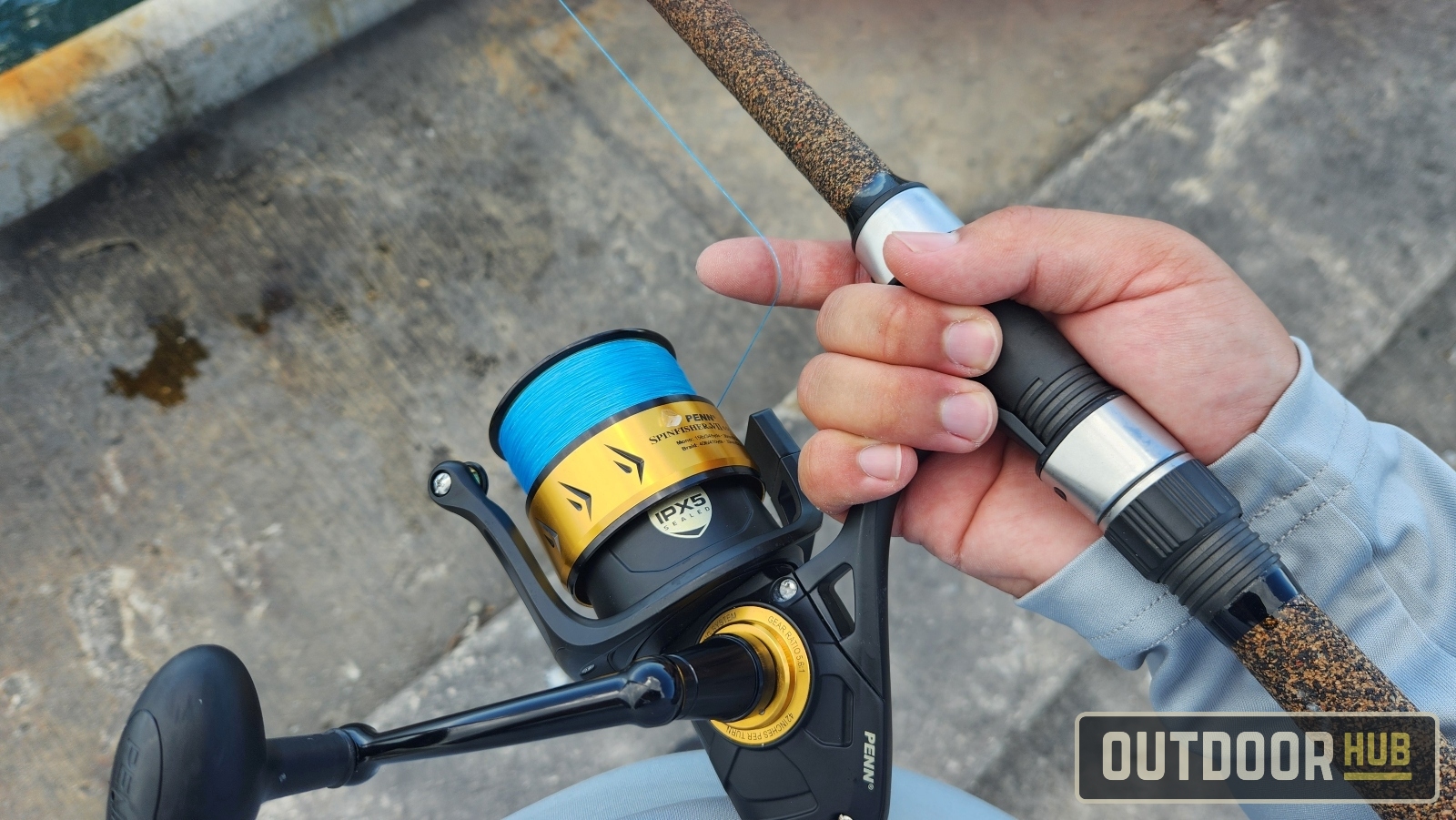

I do need to note a couple of things about the 6500 Bailess Spinfisher VII. First, if you haven’t handled a lot of sealed reels you will be surprised at the stiffness of the reel when you crank it. This is the cost you have to pay when dealing with a lot of sealed reels, I would say it runs pretty middle of the pack for the feel though. Second, is the height of the line roller on the 6500, compared to an older PENN 706 it does feel a bit high. Giving the reel a bit more of a learning curve to get used to the putting line on the roller without looking at it. However, I have heard that this is not a concern with the 4500 sized bailess reels, so take this with a grain of salt and see if you can handle both of the reels first before coming to your own decision.
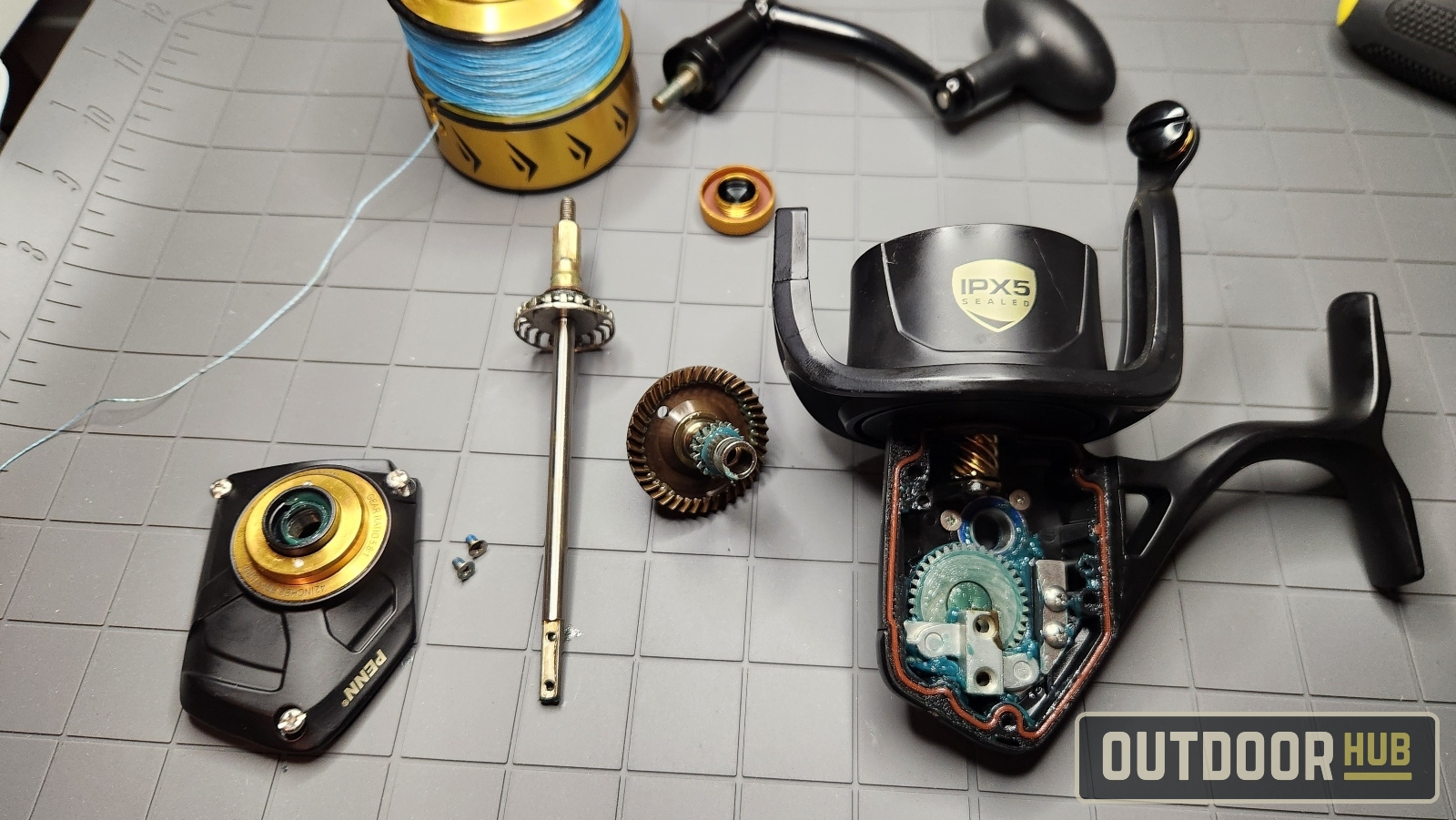

Opening it Up – PENN Spinfisher VII Bailess Spinning Reel 6500
During this year of fishing with this 6500 Bailess Spinfisher VII, I did not service this reel once. The most this reel ever got was just a spray down with a hose after trips. I did not want to baby this reel, because let’s be real a good portion of anglers will more than likely never open up their fishing reels. Hell, I’ve seen plenty of people walk straight off the pier or docks without rinsing any of their gear off after a day in the salt. I also did not add any grease to the reel as I used it during the year, everything in there is from the factory.
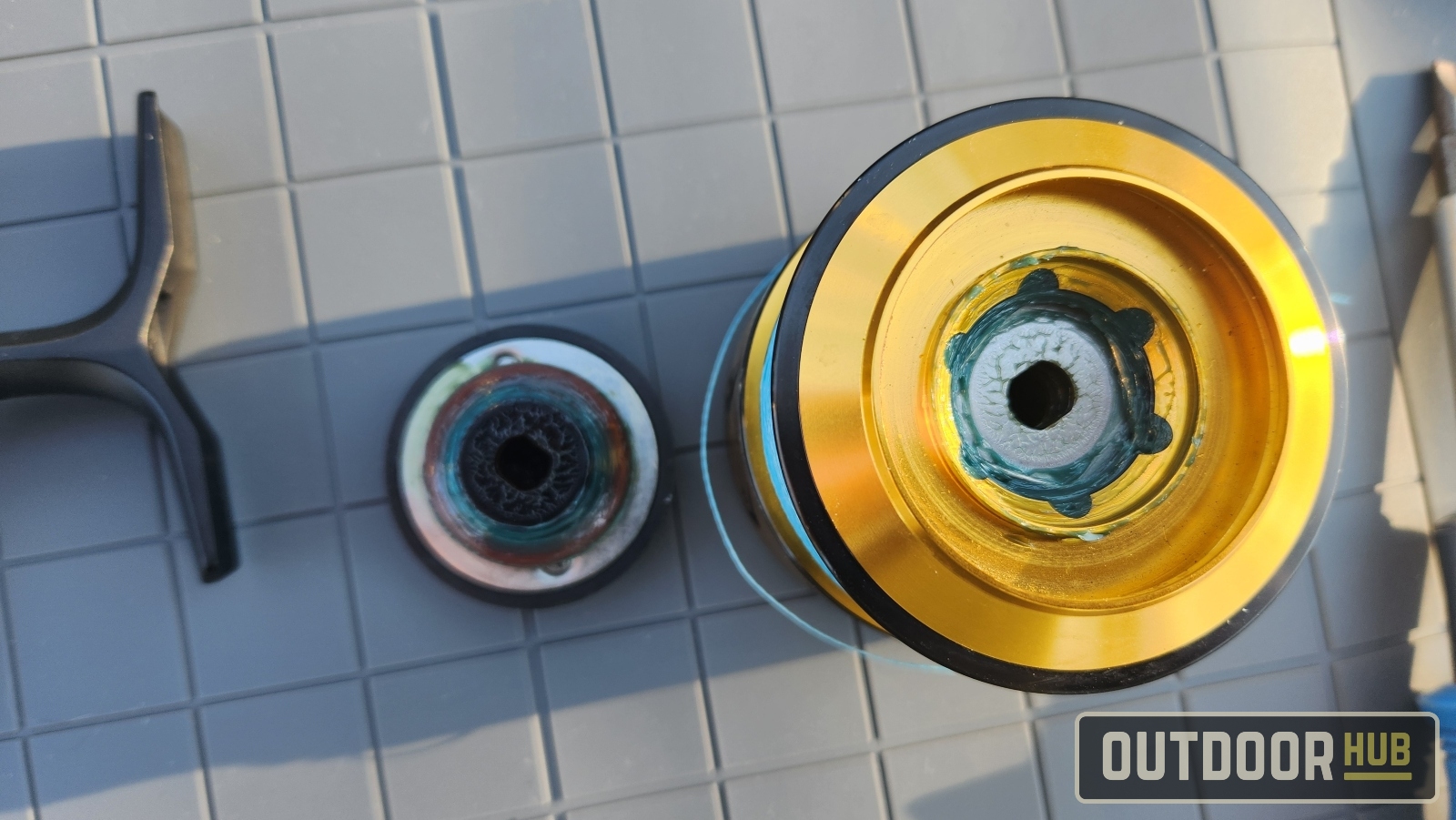

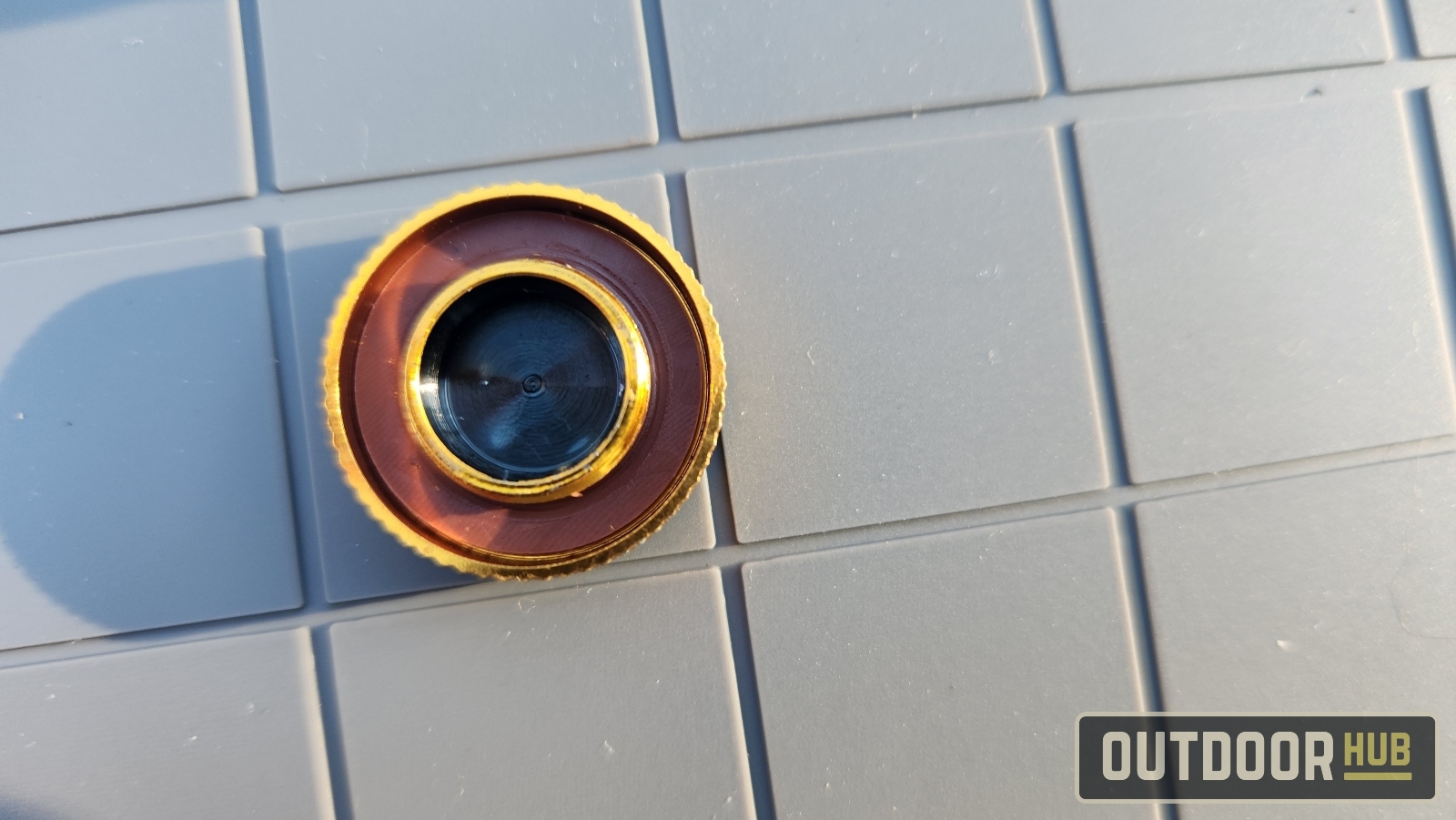

For the most part, right off the bat, I was impressed with how many seals the Spinfisher VII had throughout. With there being a rubber gasket just about everywhere water could intrude into the reel at least for what you could take apart without tools. I did notice though the reel handle itself does not have a seal behind it like the handle cap does. I also noticed a little bit of corrosion around the base of the stem of the reel handle where it screws into the body of the reel. This is more cosmetic than anything else as it doesn’t affect the reels function but it is something to keep in mind.
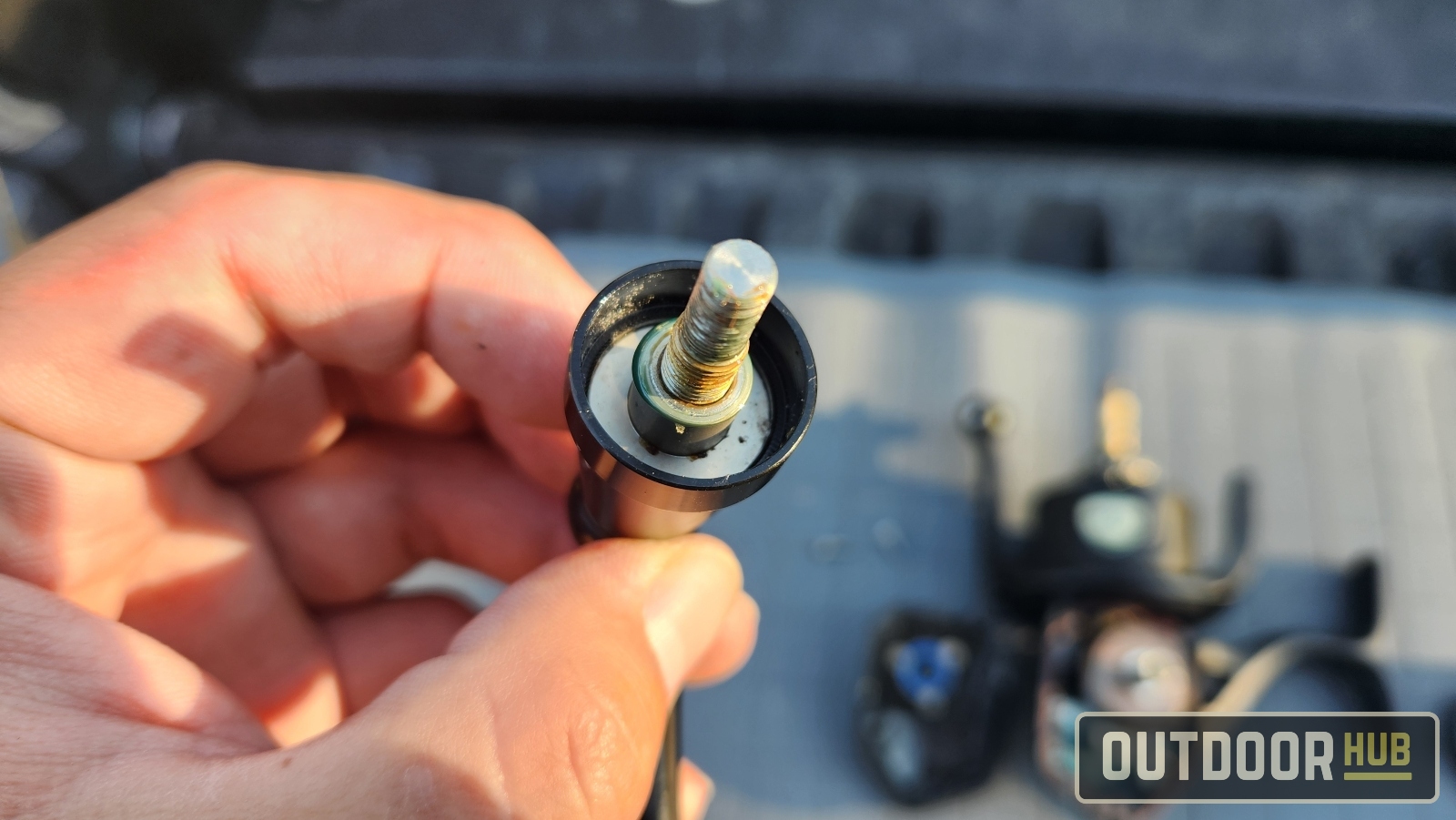

Now to open the reel up once you remove the reel handle, you only have to take the three screws holding down the side plate off. You don’t have to remove the bumper or the rotor of the reel to open it up. This is a big plus in my book, this gives you easier access with less screws to lose. I do want to note, one of the three screws did have some surface corrosion, as did the screw hole. This was easily cleaned off with a cotton swab and some warm water.
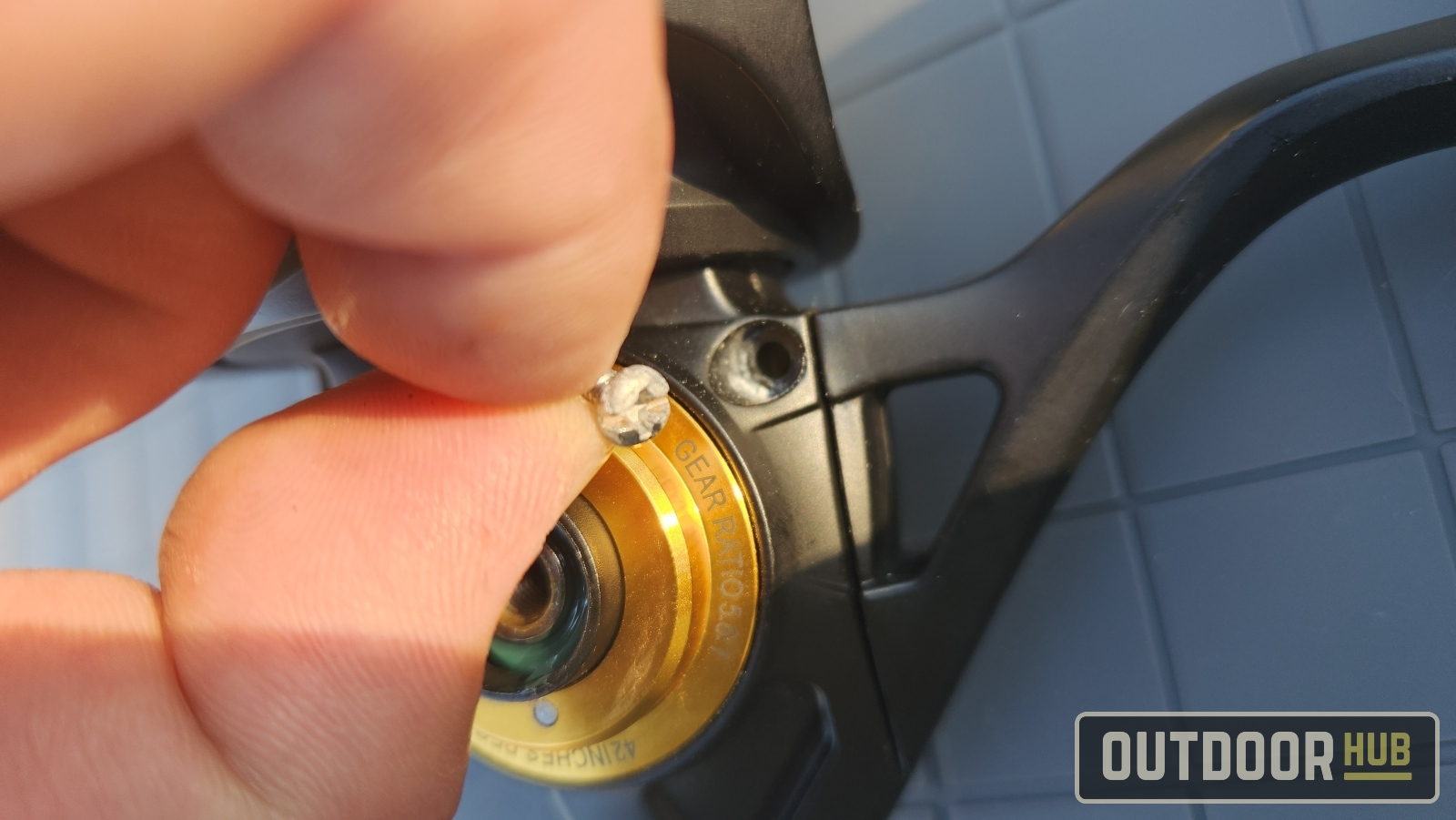

Taking the side plate off you can really see all the efforts put in to keep water, sand, and salt out of the reel. With a solid gasket punning completly around the rim of the reel body. You can also see below the sealed ball bearings, which is a big improvement over more traditionally found shielded ball bearings. These sealed ball bearings keep moisture and salt out while being even easier to service than traditional shieled ball bearings. Additionally you are great by those nice yellow gears, machined out of brass. While brass gearing used to be the standard nowadays its often been replaced by cheaper material options.
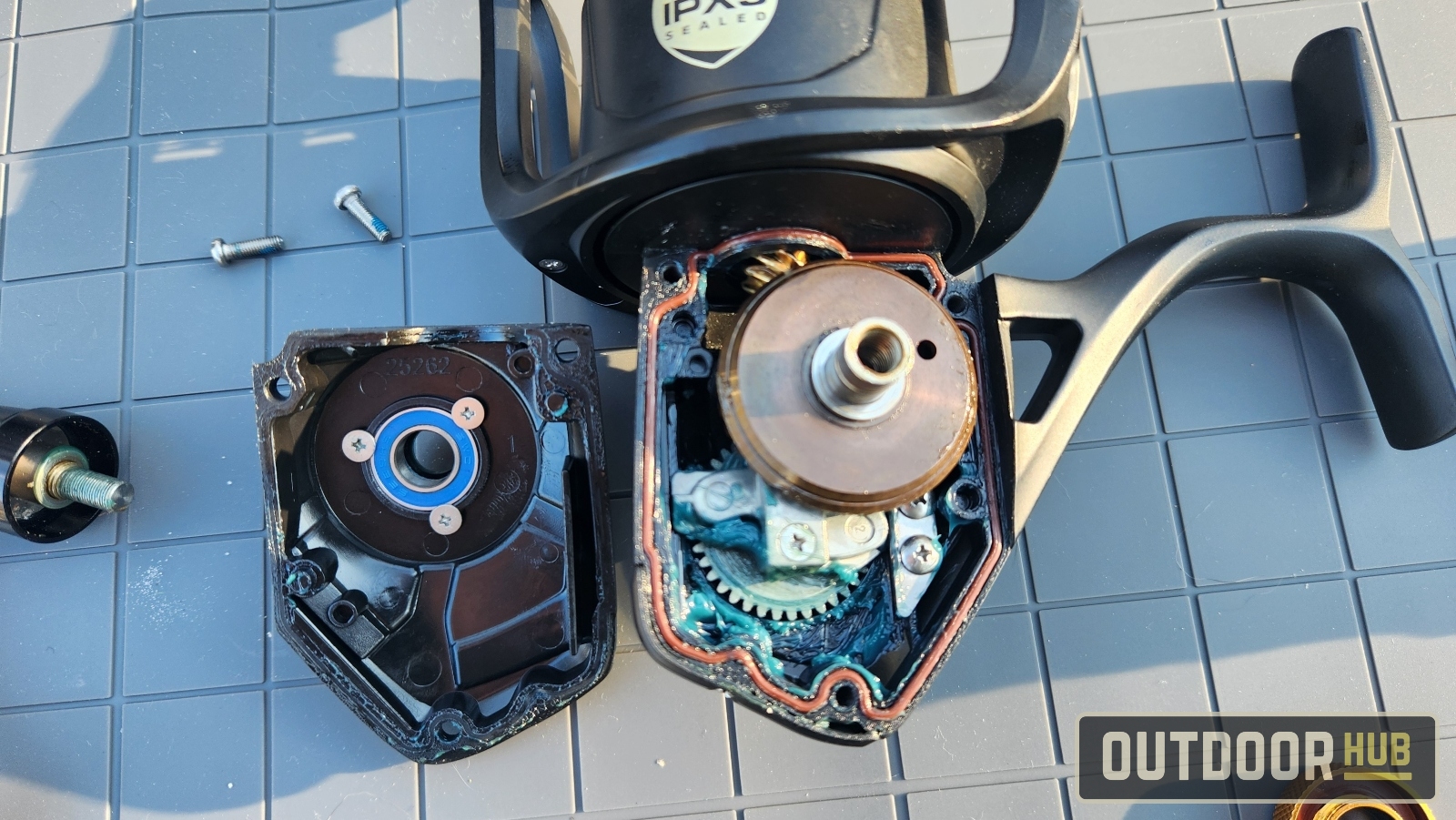

But just because the gearing is brass doesn’y automatically mean its good, we have to take a closer look at the gears to get the full story. The teeth of the drive gear show nothing out of the ordinary showing minimal wear. This goes for the pinion gear as well, the wear is not perfectly even but for the price point of the reels I wouldn’t expect them to be. If this is what the gears look like after a year, I’m not gonna worry about them for years to come. Also note the
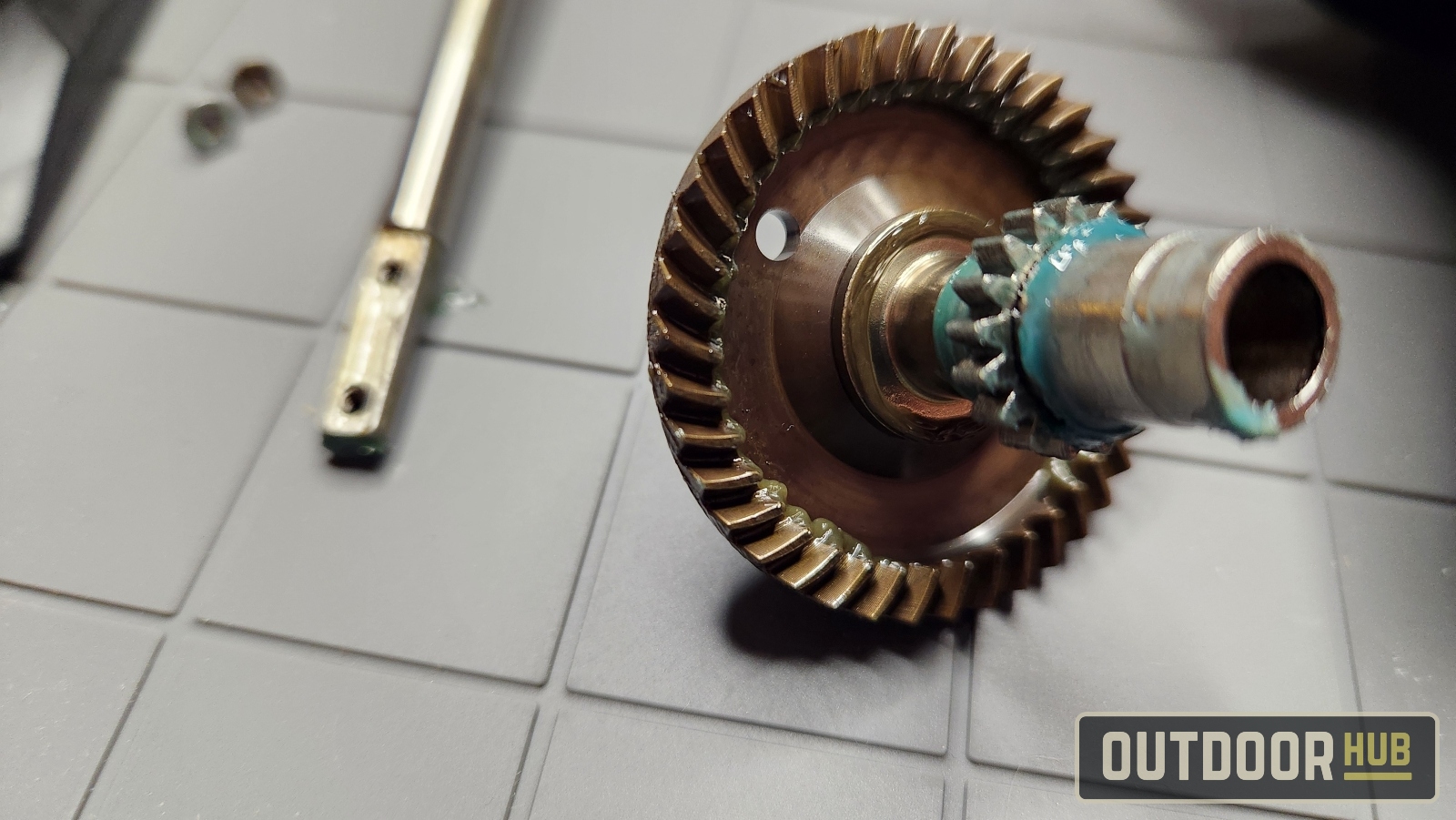

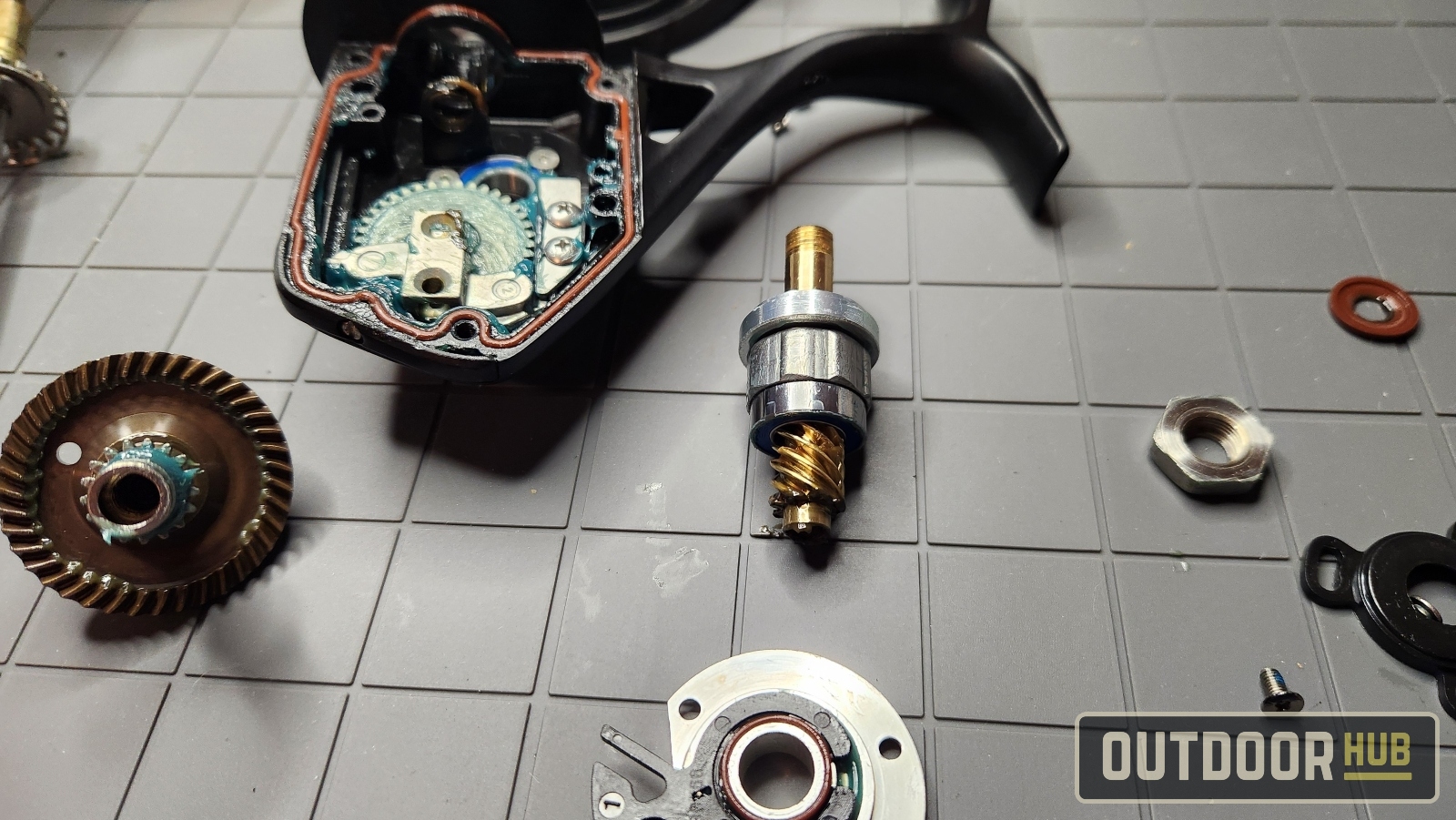

With the main shaft remove, which is held in place with two screws for added stablity, it’s time to remove the rotor of the reel. The rotor nut is locked in place but three screws and a security lock. This keeps the nut from backing off and letting the rotor wiggle under pressure. Under the security lock there is another rubber seal, to keep water from getting in through the reel’s main shaft.
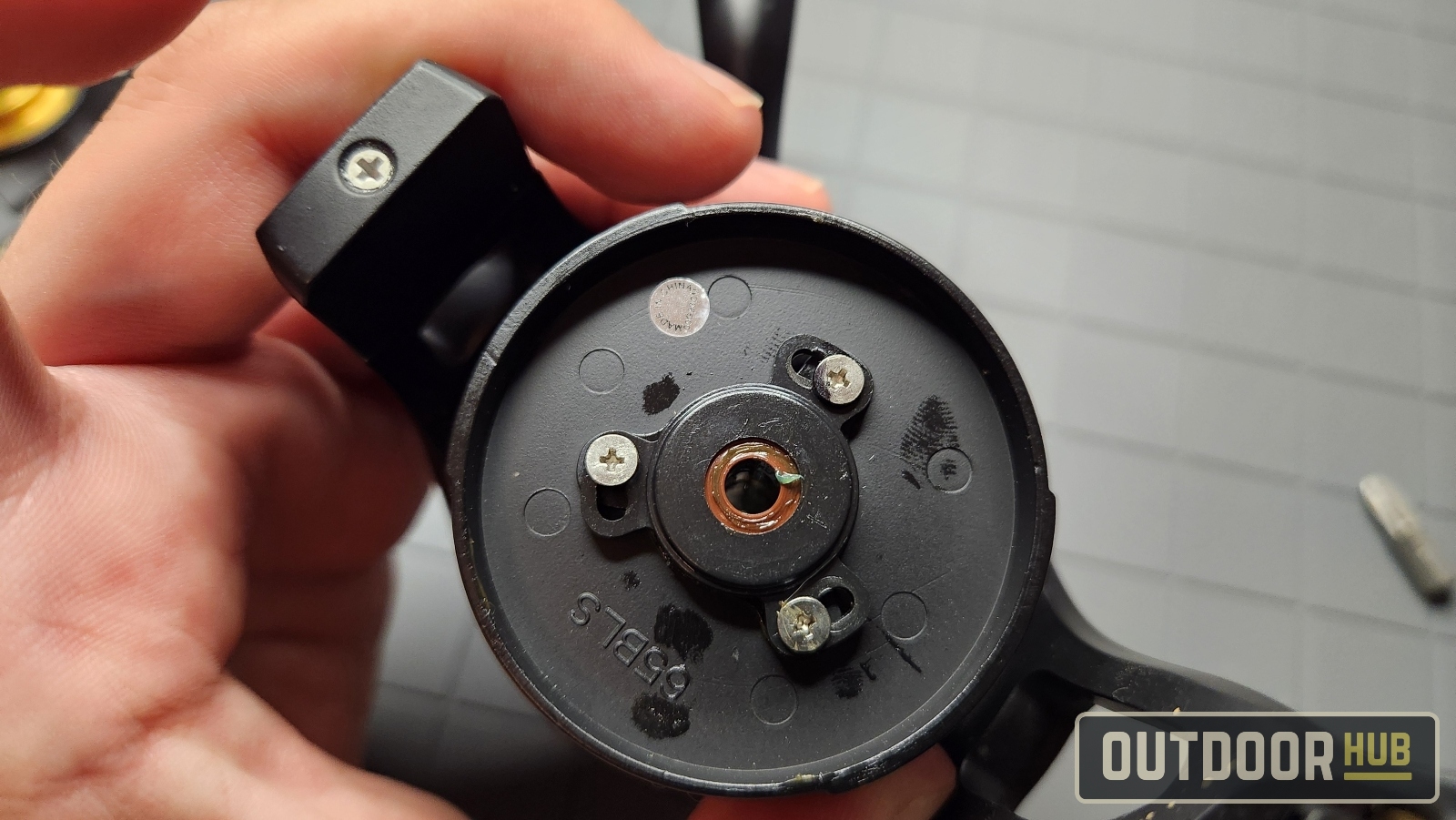

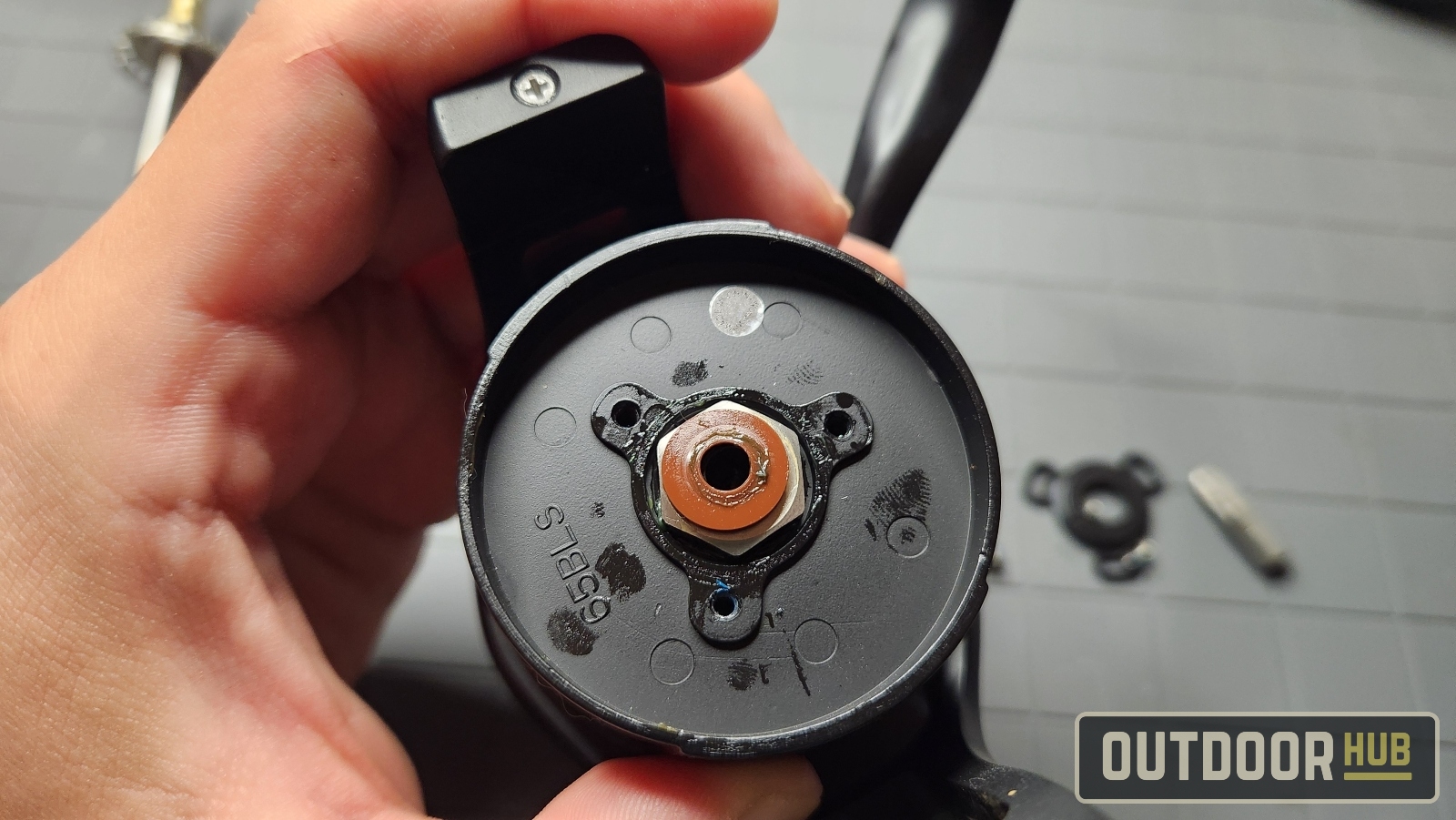

Under the rotor nut, there is another gasket to keep water out from under the rotor nut. Looking at the pinion gear you can see a synthetic bushing inside the pinon gear, this to reduce friction between the main shaft and pinion.
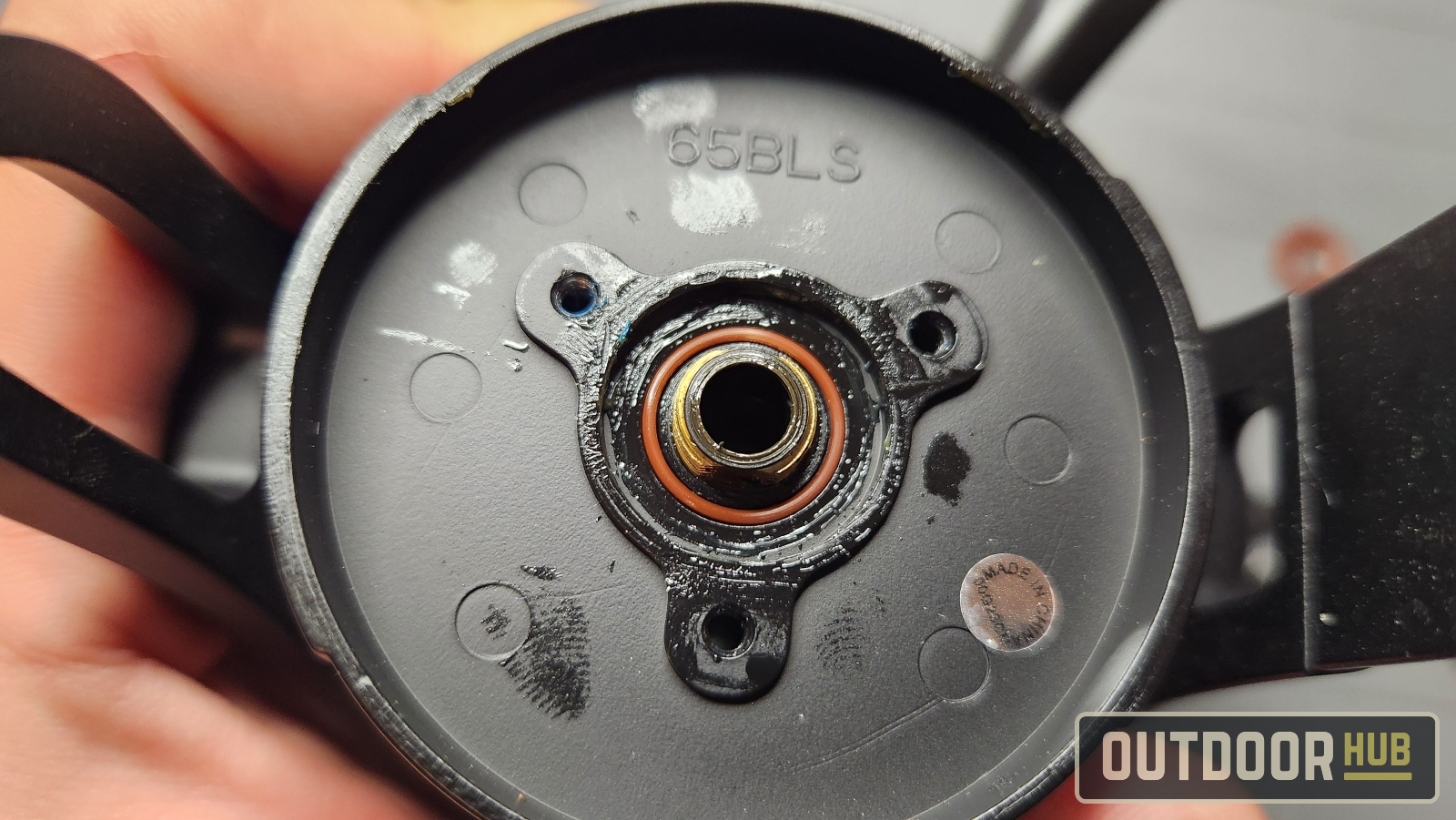

Moving on to the pinion of the rotor, I went to open up the line roller of the reel. Inside I found another sealed bearing, which is always great to see. Often now you find reels with bushings instead of ball bearings for the line roller. While bushings work, they are a poor replacement for a proper ball-bearing line roller. Again the use of a sealed ball bearing makes for a fool proof line roller system.
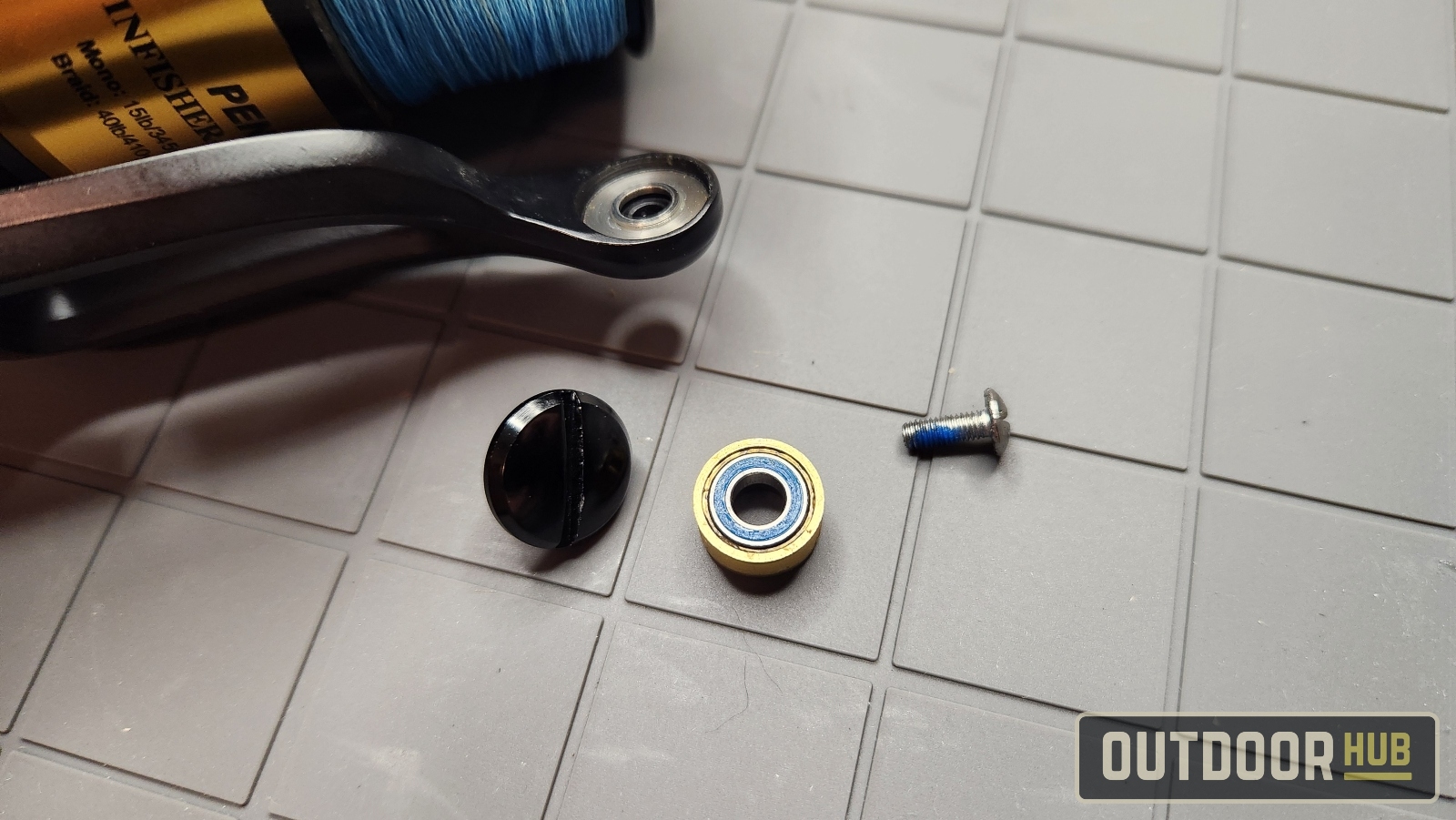

While I did not mention it before, but every screw I removed while opening up the Spinfisher VII had a healthy bit of blue threadlocker, ensuring none of the screws will back out as you fish.
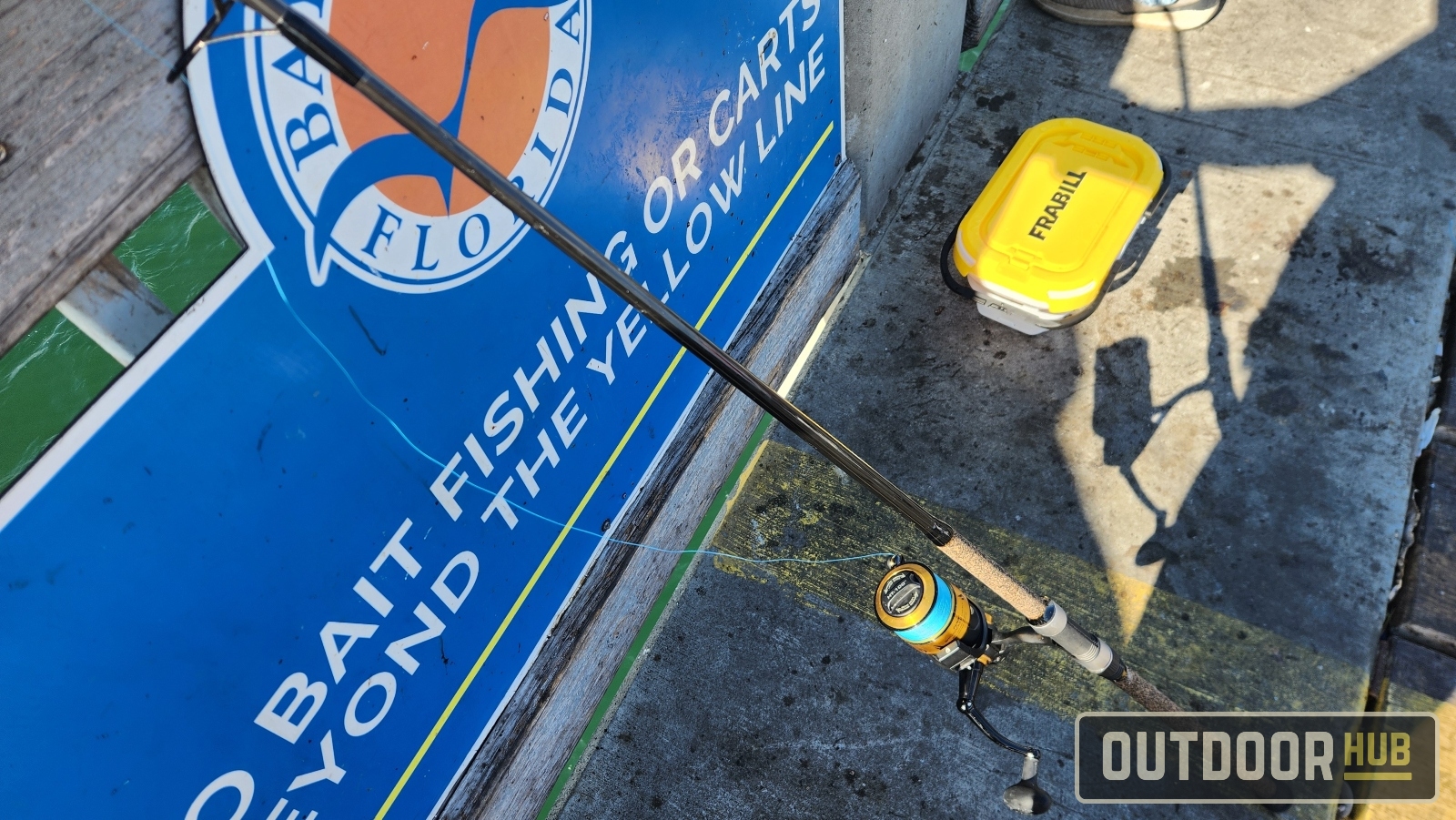

Final Thoughts – PENN Spinfisher VII Bailess Spinning Reel 6500
After a year of using the Spinfisher VII 6500 Bailess, I have to say I’m pretty happy with this new generation of Spinfisher. Like many other PENN reels, these are super rugged and solid-feeling reels with an excellent finish. It’s been a problem-free reel this whole year, with no odd noises and a good line lay on the spool. The only “problem” I had with the function of the reel was a wind knot one day on the pier, but more than likely that was user error while throwing light live baits into the wind. The new CNC machined brass gearing, the sealed bearings, gasket seals, and keyed HT-100 drag washers are all great features on the reel, but there is something I need to mention about the Spinfisher VII. If you are wanting a glassy smooth reel this is not it, the seals on the reel do give it a bit of resistance when you start reeling. But I feel the trade-off is worth it for the added durability of the reel, I see this as a reel that will last for a long time just like my trusty ole PENN 706z. The build quality and features that PENN has put into this reel make for a solid value if you are looking specifically for a modern bailess reel option that doesn’t break the bank.
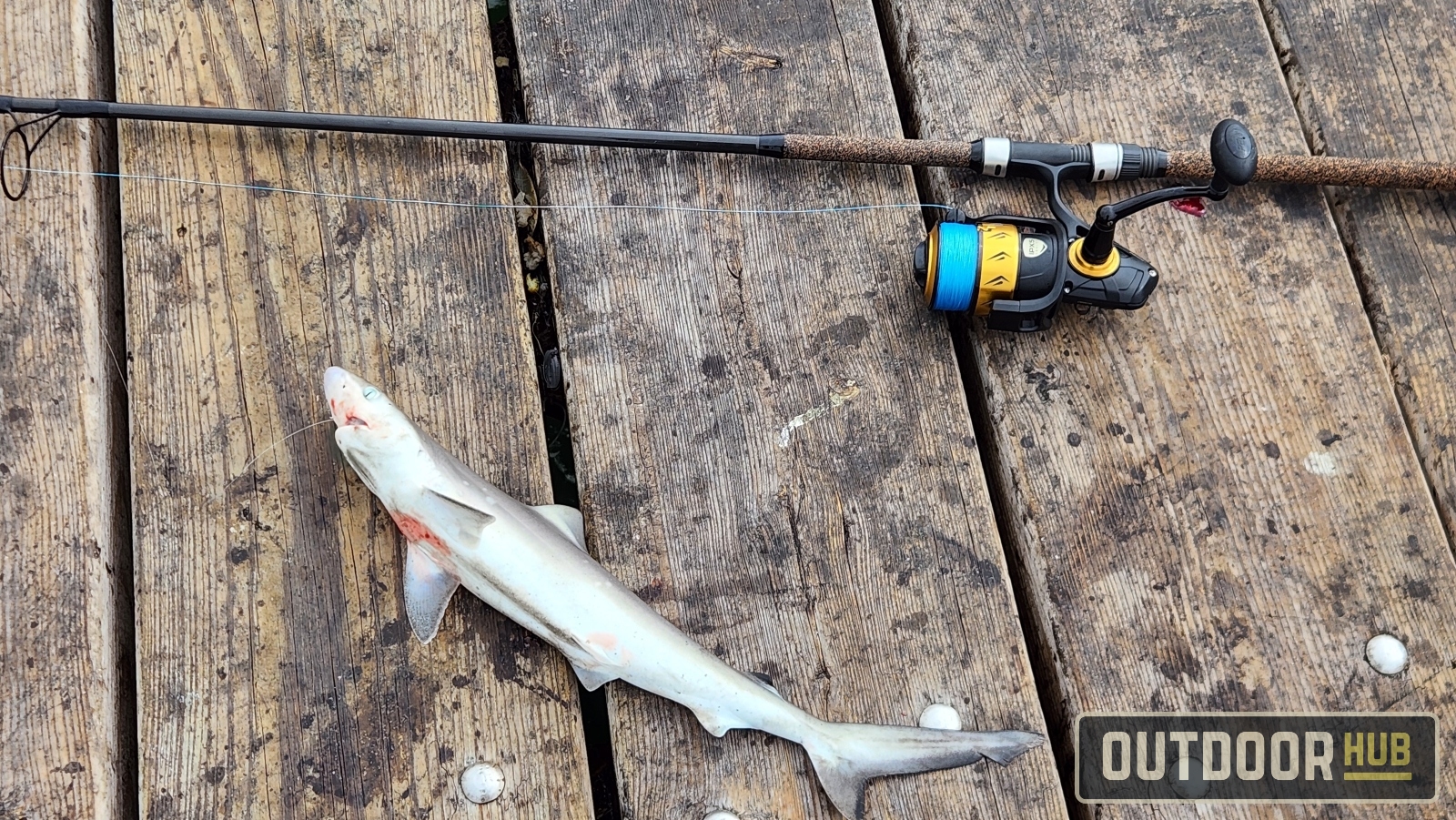

PENN Fishing Social Media Channels

